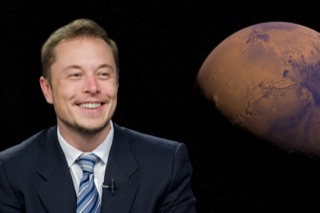Musk has arrived. Not only has he arrived, but he has arrived with great fanfare. And it’s not just the arrival that’s making headlines; he’s also being received with high-profile receptions.
Which Musk are we talking about? The one who produces Tesla cars, launches Starlink satellites into orbit, vows to send people to Mars with rockets, acquires Twitter and lays off 70% of its staff, and makes extravagant statements about Dogecoin while later calling it a scam on television.
For Musk, who is more than an industrial capitalist but not quite a financial capitalist, this land is like a second home.
Industrial capitalists and financial capitalists have a love-hate relationship. The former needs the latter’s financial support to grow and prosper, but when it comes to sharing and seizing surplus value, they become bitter rivals, envious of each other’s gains.
That’s why Musk is dissatisfied with Wall Street and disdainful of Buffett. Musk doesn’t care about Buffett, and Buffett doesn’t care about Musk.
During the darkest period when Musk had nothing but dreams and financial capital was unwilling to foot the bill for his dreams, he found himself on the brink of bankruptcy. He spent sleepless nights, shedding tears, and even now, looking back, he still feels a lingering fear.
Those darkest years, which almost doomed him, made him realize the nature of financial capital: a strong gambling instinct. Financial capitalists look down on small, highly certain profits but are willing to take on all risks for future returns that could be thousands of times greater. He understood. To sell electric cars, he needed to tell a fantastic story about fully autonomous driving. To launch rockets, he had to package it as a grand dream of colonizing Mars. This strategy worked like a charm, attracting risk capital in droves. They fell at his feet, ready to serve Musk, and he never ran out of money again.
But those old-school American financial capitalists still didn’t take him seriously. They even tried to keep him out of the game. They accused him of market manipulation and wielded the weapon of scrutiny.
So Musk turned to cryptocurrency. In 2021, he directed Tesla to buy and sell Bitcoin, and he personally took center stage, promoting Dogecoin in various ways. He became the beloved Dogefather worshipped by global investors. And after acquiring Twitter, he even changed its logo to a dog’s head symbolizing Dogecoin.
How can such a rebellious young man be compared to old money like Buffett?
In this era of a precarious US dollar hegemony, cryptocurrency becomes a ladder for industrial capitalists like Musk to ascend to the ranks of new financial capitalists. They then enter the realm and overturn the tables of the old money, reshaping the rules of the game with a powerful weapon.
Comments